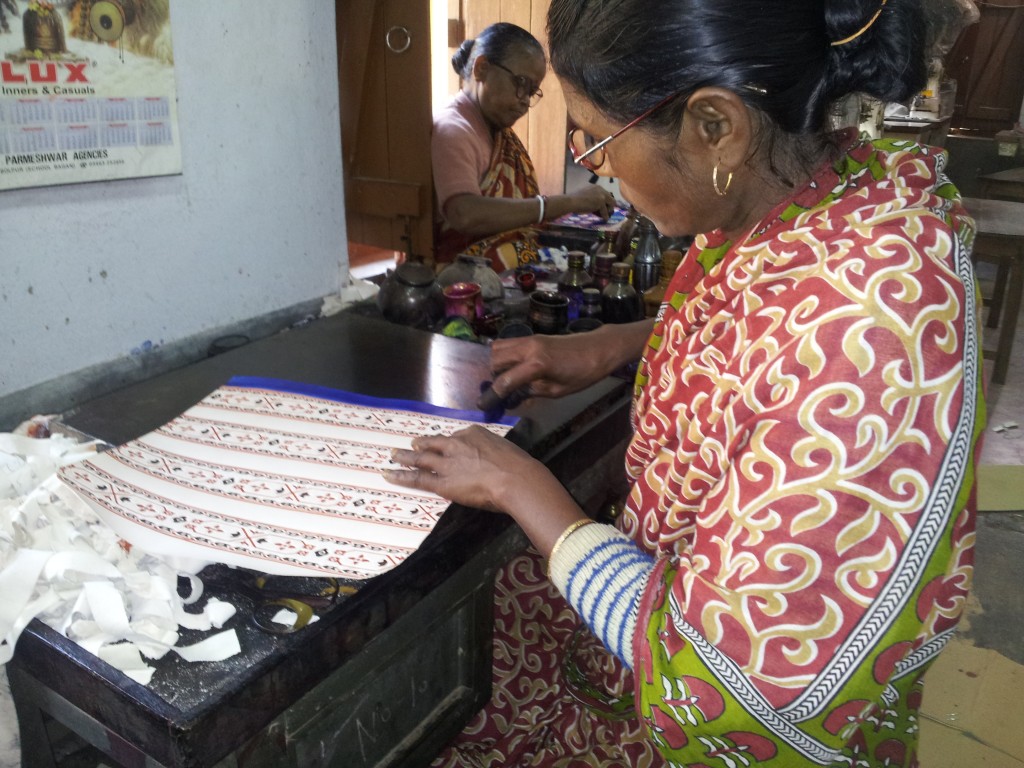
Fair Trade is a trading partnership based on mutual respect, transparency, equality, sustainable development and the rights of the marginalised producers.
As a member of Fair Trade Association of Birmingham and someone who runs ‘Rangoli‘, an ‘ethically sourced’ handicrafts business in Birmingham, I would like to take this opportunity to say that Fair Trade can still and will continue to bring positive changes in terms of reducing our carbon footprint and bringing an equality in terms of addressing poverty and trade imbalance.
It’s understandable that the words ‘fair’ and ‘ethics’ mean different things to different people but fundamentally it tries to do good.
Where does a product come from? Who makes them? What are the working conditions? What raw materials are used and where are they sourced from? And who benefits from the ‘profits’? These are the pertinent questions which needs to be answered.
Fair and ethical trade is also about using our resources in a sustainable way. By using less water, generating less waste, promoting sustainable transportation and boosting self reliance in food and energy, we can go on a long way in tackling climate change, that could have a devastating effect on the planet.
There has been a paradigm shift the way we see our lives in the wake of global warming. Whatever we do in our daily lives, we do depend on non-renewable fossil fuels from driving cars to printing paper. Although we cannot go back to pre-industrial age, we can do things to reduce our dependency on fossil fuels. Scientific evidence shows that global temperature has risen over the past century and more acutely in the last couple of decades.
Fair Trade answers a lot of these questions as most non food products are handmade with minimal factory production, which in turn has a very low CO2 emission rate.
Climate change is increasingly recognised as a major challenge and it is apt we take a note of it. With regards to fuel usage, vehicle usage, electricity bill, employee travel and sourcing stocks from other countries we can ensure that the whole process emits the minimum greenhouse gases as possible.
And the way to go forward is to have fairness in the heart of our business principles.

1 Comment
I am glad that someone is highlighting the link between climate change and fair trade.
Many of the well intentioned interventions aimed at relieving poverty in the developing world exacerbate the problem of climate change -for example by promoting cash crops for export that feeding a luxury market in the west, for example chocolate and coffee, that do little to address the issue of deforestation and the encroachment of the agricultural frontier.
This is a major cause of climate change – whilst we were complaining about floods in the UK earlier this year 68 people died in the Bolivian Amazon, with hundreds of thousands of cattle killed and annual crops ruined. “Giving a cow is not the solution!” – TREES are the solution – getting subsistence farmers to grow trees WITH their crops provides MANY advantages – shade & windbreaks for delicate crops, better management of soil water through the dry and wet seasons, defence against compaction, leguminous species provide nitrogen for poor soils – and so on.
In addition the timber they provide offers a higher income per hectare that many crops (or cows), growing trees are a great “flexible friend” for families with no other access to credit, they are far easier for ageing farmers (whose children leave them to work in nearby towns) to manage than crops like coffee or cocoa – and at least provide some shade if they do have to look after these crops.
My main source of unease about fair trade though is that we buy many of the items we buy under the fair trade brand out of sympathy rather than iut of need – in other words it is a false market – if you want to be charitable why not just make a donation?
On te other hand wood is a basic raw materuial that we all need. I would dearly love to see a fair trade mark for wood from native tree species,produced by smallholders on their own land as part of a holistic land management plan that not only gives them a higher and more secure income but also make a positive environmental contribution by arresting deforestation and protecting biodiversity.
Could such a project exist – you bet! – http://www.cochabamba.coop. – yes, its co-operative too!